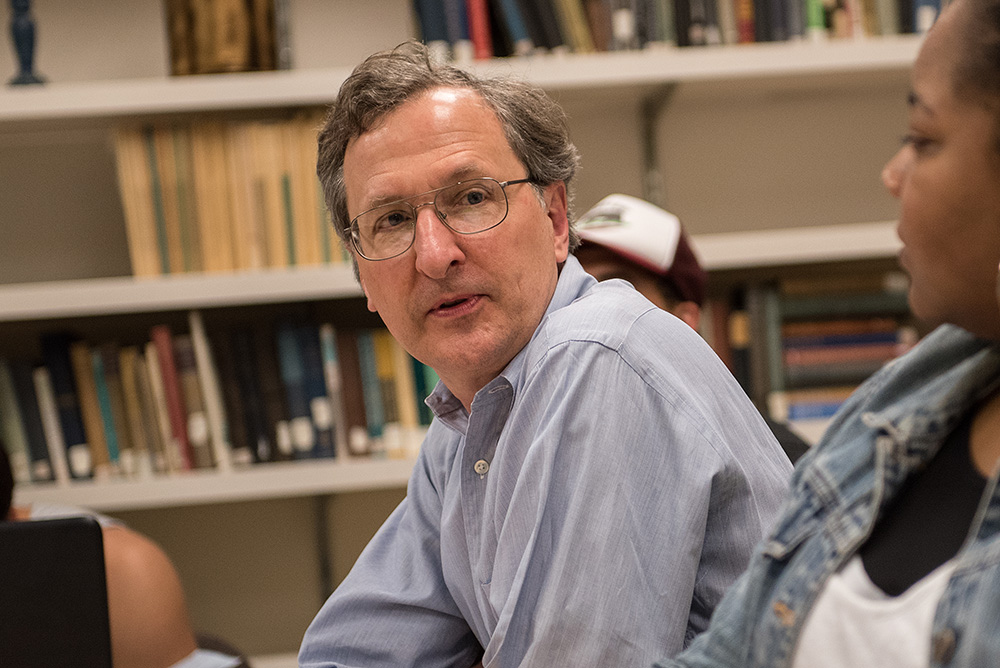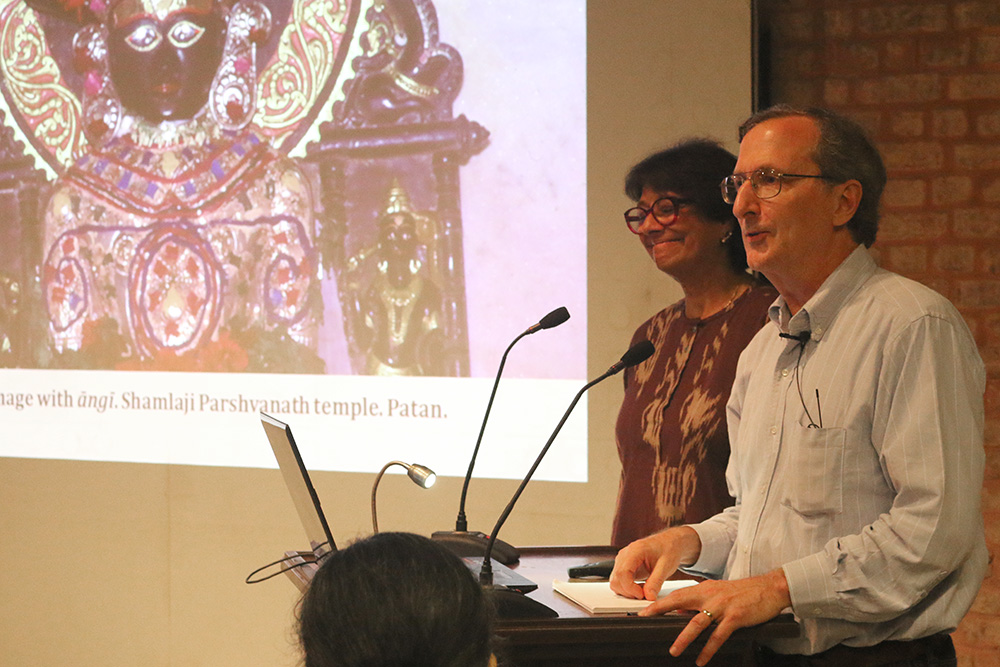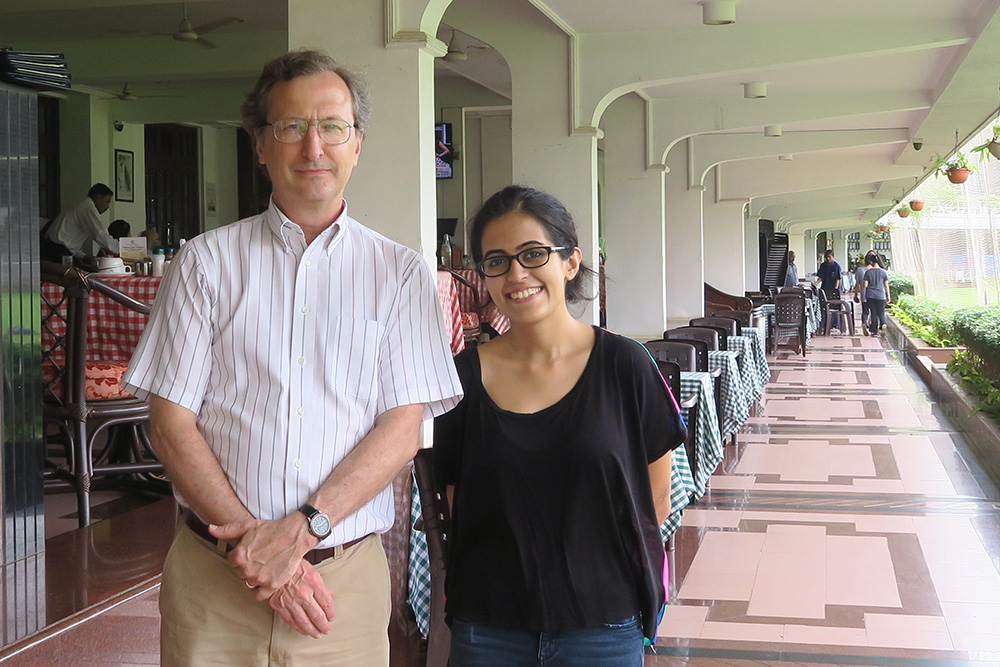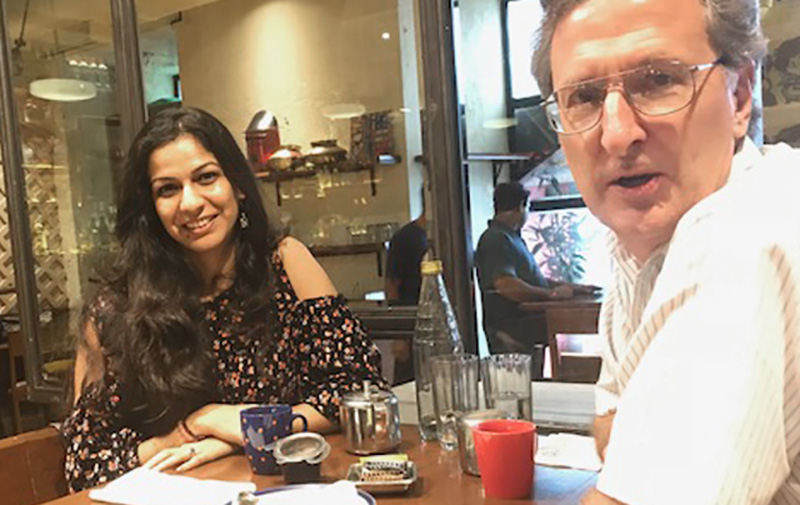Summertime always gives us a good break from the semester’s schedule of classes, exams, and papers — both for students and professors — but that doesn’t mean it’s downtime for anyone. Summer for most faculty and many students means digging in on research in their disciplines, whether it’s working with summer scholars on campus, traveling to learn and exchange information, or focusing on reading and writing to keep up with their fields of expertise.
For John Cort, Professor of Asian and comparative religions, India has been his summer and sabbatical destination for decades, conducting research as an eminent scholar of the Jain tradition of South Asia as well as the society, culture, and history of western India. He returned to New Delhi and Mumbai for June and July of 2018 to continue a range of engagements, and from there traveled to Warsaw, Poland for the 13th annual conference on Early Modern Literatures of North India.
Cort, who holds the Judy Gentili chair in international studies, finds it’s imperative to visit India on a regular basis to keep up with the changing country and evolving research. “Spending two to four weeks in India during the summer allows me to engage in detailed conversations with colleagues in cities like Delhi, Ahmedabad, and Mumbai, to do some of my own research, and to connect with former Denison students. I call them students, which they were when I was formally their teacher in college,” Cort adds, “but now I find that I have so much to learn from them, as they pursue fascinating careers in India, that the relationship has reversed.”
The Association for Asian Studies is the primary organization for scholars of Asia in North America, and this summer their conference was held for the first time in South Asia, in New Delhi. Together with a professor of anthropology at Adelphi University, Cort presented a session that looked at different aspects of the culture, society, and politics of Gujarat in western India, and asked scholars to consider ways that cultural geography in India often does not match with the on-the-ground contemporary political borders. The discussions were lively, and the conference as a whole brought connections that will inform future learning opportunities for the Denison community.
In Mumbai, Cort presented a public lecture at Jnanapravaha, a private educational institution that “aims to provide a neutral yet stimulating space for the global exchange of creative Indian thought.” Cort spoke about his research on the temples, icons and rituals of the ancient Indian religion of Jainism.
While he was in Mumbai, he also connected with two of his former students from Denison, Nitya Daryanani ’14 (anthropology-sociology and international studies) and Gauri Bhure ’04 (international studies and English literature).
Daryanani now works for Dasra, a Mumbai-based NGO that addresses issues of socially responsible development and poverty alleviation.
Also in Mumbai, Gauri Bhure ‘04 brings Professor Cort up to speed on her work with the India Committee of United World Colleges.
Bhure is now head of the India Committee of United World Colleges, a global network of 15 colleges that provide the final two years of secondary education to students from throughout the world, with the goal of “transmitting a spirit of mutual understanding to young people to help them overcome prejudice and antagonism through working and living together [and thus] enabling them to act as champions of peace.”
Cort observed, “It is a joy to meet with Denison alumni throughout the world. I’m always so impressed with what they’re doing, and there’s real pride in being associated with them and with Denison.”



